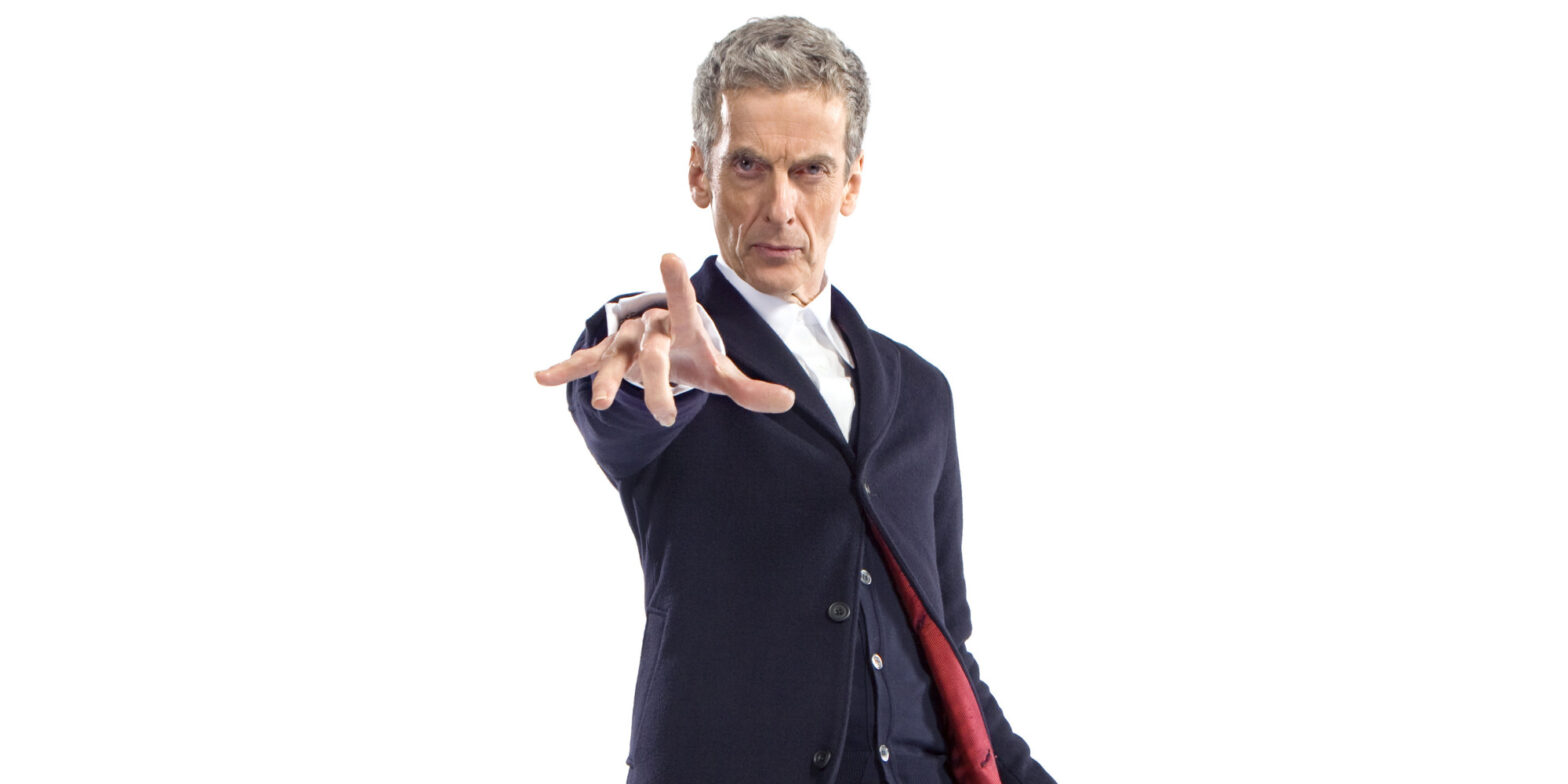Yesterday, the first five scripts of the eighth season of Doctor Who leaked to the Internet. Despite the BBC’s pleas for fans not to share them, the scripts are out there, fans are sharing them, and fans are discussing them.
People have asked me if I’ve found them. I didn’t find them myself, but I have them. And no, I’m not going to tell you where to find them.
I’m also not going to share plotwise what’s in them. Of course, at this point I’ve only read about twenty five pages of “Deep Breath,” Steven Moffat’s double-length season premiere, and “Listen,” the Moffat-penned fourth episode of the season which will undoubtedly be controversial. (The other episodes, in order around the two I’ve named, are Phil Ford’s “Into the Dalek,” Mark Gatiss’ “Robots of Sherwood,” and Steve Thompson’s “Time Heist.”)
However, I do want to share some of my reactions to what I’ve read. I’m going to avoid spoilers as best as I can, so some of this will seem quite vague.
The big question about the eighth season, of course, is what kind of Doctor Peter Capaldi will play. We’ve already seen him in costume, but how’s the man in action?
Based on “Listen,” on the page, Capaldi’s Doctor is an asshole. I’m reminded of early Hartnell or Pertwee. He’s not cuddly at all. This is an old, cantankerous fucker who talks like Socrates, quotes (or at least closely paraphrases) Benedict Cumberbatch’s Sherlock Holmes, and plays mind games on Clara. He’s not a child, he’s a nasty piece of work who lacks social graces and self-awareness. Yet, in “Deep Breath,” the season premiere, he’s somewhat warmer, though still harsh, to Clara at episode’s end. (I read the first act, and then I jumped ahead to the final scenes.)
My immediate reaction to “Listen” was that it was “meh.” The first twenty pages are creepy as fuck, and then suddenly it’s not. It took some thought for me to understand why. Once I got past the derivative nature of the script (Moffat recycles scenes from “The Eleventh Hour” and “Time/Space,” recycles lines from “A Study in Pink,” and tries to do the timey-wimey rom-com thing that Richard Curtis did in About Time), I could see why the script falls flat. It’s only superficially a Doctor Who story.
What I mean by that is that it has some elements of a Doctor Who story — the Doctor, the companion, the Doctor’s desires to fight monsters — but the story loses a key ingredient. The Doctor’s desire to fight a monster is only the MacGuffin for the script. Instead, the story that plays out really revolves around Clara’s personal life and the Doctor’s motivation. It’s like a Star Trek: Voyager or late-period Star Trek: The Next Generation script; the “boldly going” part is really just an excuse for time spent on Worf’s problem with hangnails or Janeway’s broken coffee pot. Like in “Asylum of the Daleks” (where the Dalek plot is an excuse for Amy and Rory’s relationship problems to play out), the monster in “Listen” is an excuse for the Doctor’s and Clara’s character material. That’s why I say that “Listen” is only superficially Doctor Who. It has the trappings of Doctor Who, but it uses them in a way that isn’t Doctor Who. And that, in my opinion, is a long-standing problem with the Moffat-era of Doctor Who. I really think Moffat missed his calling as part of the Star Trek: Voyager writers room.
I have the impression that Moffat cannot deal with the implications of his past work realistically. In what I’ve read, there’s no sense that 900 years passed for the Doctor on Trenzalore. The Doctor behaves to Clara and the Paternoster Gang as though his last encounter with them was a month ago at most. The Doctor spent a significant chunk of his life on Trenzalore, and it had absolutely no effect on him. I’m reminded, frankly, of Moffat’s inability to realistically deal with the emotional fallout to Amy and Rory by the abduction of the infant River. This is a significant happening to the characters and clearly a Big Issue, and yet, for all intents and purposes, it might not have even happened. Trenzalore and its implications are like that.
I also get the feeling that Moffat is determined to break the playground equipment as badly as he can before he goes out the door. Writers like to play with toys, and in “Listen” Moffat puts a very big, very shiny, and very new toy on the playground that begs to be played with, but it’s also a toy that can be very damaging to the franchise because it’s a toy that can in the wrong hands and all too easily lead to an explosion of fanwank that would be visible in the Andromeda Galaxy. I’m also having a difficult time imagining how a post-Moffat/post-Clara Doctor Who will even function; Moffat is making his work and his newest companion the keystone to the whole of Doctor Who‘s mythology, and I don’t know how the series copes in the absence or even recovers from that.
Finally, I think that, based on what I’ve read, there’s no marked departure from what’s gone before. If you’ve liked what Moffat has done the last two or three years, then you’ll like season eight. If you haven’t liked what Moffat has done, then you’ll find ample ammunition for disliking his work.
Roll on August.
